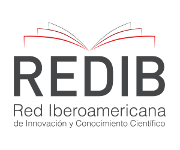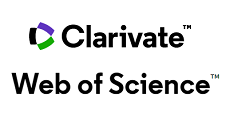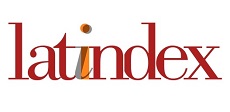Prospective study for the production of oleochemicals derivates from palm and palm kernel oil in Colombia
Prospectiva de la producción de oleoquímicos derivados del aceite de palma y de palmiste en Colombia
DOI:
https://doi.org/10.15446/ing.investig.v23n2.14591Keywords:
prospective, oleochemicals, palm and palm kernel oil (en)prospectiva, oleoquímica, aceite de palma, aceite de palmiste (es)
Downloads
There are many ways get close to the future, being the prospective the one that conceives the future, not like an unique reality but like a multiple one, obtained as a result of the identification of the human being future actions. For all this, the human being takes the knowledge, the yearnings and the fears that he sees for the actions he will undertake.
Keeping in mind the characteristic of the palm cultivation (perennial, of late growth, with a 25 years productive horizon), and the future of the sector captured in “Visión y estrategias de la palmicultura colombiana 2000 – 2020” together with the economic tendencies of the world, the methodology of planning denominated prospective, becomes an appropriate tool to establish the future of the oleochemical sector derived from the palm and palmist oils, which is right now very incipient in our country.
Using the prospective, this article outlines the dynamics that will have the sector, starting from the definition of the keys that define the current and future behavior of the system, the position and the power that each one of the involved actors will have, and the determination of the scenarios (future representations) with more probability to occur, as well as the definition of the scenario wanted and the strategies that will allow to reach it.
Existen diferentes formas de aproximarse al futuro, pero la prospectiva es la única que concibe el futuro no como una realidad única sino como una realidad múltiple obtenida como resultado de la identificación de la acción futura del hombre, valiéndose del conocimiento de los proyectos, anhelos y temores que tiene el mismo hombre con respecto a las acciones que emprenderá.
Teniendo en cuenta las características propias del cultivo de palma (perenne, de tardío crecimiento, con un horizonte productivo de 25 años) y el futuro del sector, plasmado en “Visión y estrategias de la palmicultura colombiana 2000 - 2020”, unido a las tendencias económicas del mundo, la metodología de planeación denominada prospectiva, se convierte en una herramienta apropiada para establecer el futuro del sector oleoquímico derivado de los aceites de palma y de palmiste, actualmente incipiente en nuestro país.
Por medio de la metodología prospectiva, en este artículo se plantea la dinámica que tendrá el sector, a partir de la definición de las variables claves que determinan el comportamiento actual y futuro del sistema, la posición y el poder de acción que tendrá cada uno de los actores involucrados y la determinación de los escenarios (representaciones de futuro) con mayor probabilidad de ocurrencia, así como la definición del escenario apuesta o deseado y las estrategias que permitirán alcanzarlo.
References
Árape, Jesús, Manual de metodologías, tomo IV, noviembre de 2000. disponible en: http://www.cnam.fr/deg/lips/toolbox/Boespa.doc.
Cely, Alexandra, Elaboración de los escenarios de desarrollo tecnológico futuro para el subsector de abonos en Colombia empleando un enfoque de prospectiva tecnológica, Bogotá, Universidad Nacional de Colombia, 1998.
Fedepalma, “Visión y estrategias de la palmicultura colombiana: 2000- 2020”, Bogotá, 2000.
___, Anuario Estadístico 2001.
Godet, Michel, De la anticipación a la acción: manual de prospectiva y estrategia, México, D.F., Alfaomega,1995.
Jaimes, Diana y Romero, Carlos, Prospectiva de la producción en Colombia de oleoquímicos derivados de los aceites de palma y de palmiste, Bogotá, Universidad Nacional de Colombia, 2002.
How to Cite
APA
ACM
ACS
ABNT
Chicago
Harvard
IEEE
MLA
Turabian
Vancouver
Download Citation
CrossRef Cited-by
1. Yuranis T. Julio-Altamiranda, Juan D. Mercado-Pacheco, Eduardo L. Sánchez-Tuirán, Ángel D. González-Delgado, Karina A. Ojeda. (2020). Evaluation of mechanical-green solvent pretreatment of oil palm wastes for reducing sugars production in North-Colombia. Sustainable Chemistry and Pharmacy, 16, p.100256. https://doi.org/10.1016/j.scp.2020.100256.
Dimensions
PlumX
Article abstract page views
Downloads
License
Copyright (c) 2003 Diana Ibeth Jaimes Moreno, Carlos Alexander Romero Pineda, Paulo César Narváez Rincón

This work is licensed under a Creative Commons Attribution 4.0 International License.
The authors or holders of the copyright for each article hereby confer exclusive, limited and free authorization on the Universidad Nacional de Colombia's journal Ingeniería e Investigación concerning the aforementioned article which, once it has been evaluated and approved, will be submitted for publication, in line with the following items:
1. The version which has been corrected according to the evaluators' suggestions will be remitted and it will be made clear whether the aforementioned article is an unedited document regarding which the rights to be authorized are held and total responsibility will be assumed by the authors for the content of the work being submitted to Ingeniería e Investigación, the Universidad Nacional de Colombia and third-parties;
2. The authorization conferred on the journal will come into force from the date on which it is included in the respective volume and issue of Ingeniería e Investigación in the Open Journal Systems and on the journal's main page (https://revistas.unal.edu.co/index.php/ingeinv), as well as in different databases and indices in which the publication is indexed;
3. The authors authorize the Universidad Nacional de Colombia's journal Ingeniería e Investigación to publish the document in whatever required format (printed, digital, electronic or whatsoever known or yet to be discovered form) and authorize Ingeniería e Investigación to include the work in any indices and/or search engines deemed necessary for promoting its diffusion;
4. The authors accept that such authorization is given free of charge and they, therefore, waive any right to receive remuneration from the publication, distribution, public communication and any use whatsoever referred to in the terms of this authorization.



























